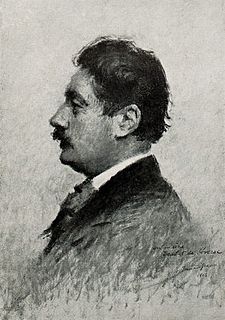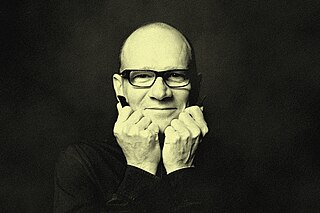Related Research Articles

Philippe Verdelot was a French composer of the Renaissance, who spent most of his life in Italy. He is commonly considered to be the father of the Italian madrigal, and certainly was one of its earliest and most prolific composers; in addition he was prominent in the musical life of Florence during the period after the recapture of the city by the Medici from the followers of Girolamo Savonarola.
Nicolas Gombert was a Franco-Flemish composer of the Renaissance. He was one of the most famous and influential composers between Josquin des Prez and Palestrina, and best represents the fully developed, complex polyphonic style of this period in music history.
Guillaume-Gabriel Nivers was a French organist, composer and theorist. His first livre d'orgue is the earliest surviving published collection with traditional French organ school forms. Nivers's other music is less known; however, his treatises on Gregorian chant and basso continuo are still considered important sources on 17th century liturgical music and performance practice.

Jacques Mauduit was a French composer of the late Renaissance. He was one of the most innovative French composers of the late 16th century, combining voices and instruments in new ways, and importing some of the grand polychoral style of the Venetian School from Italy; he also composed a famous Requiem for the funeral of Pierre de Ronsard.

Claude Le Jeune was a Franco-Flemish composer of the late Renaissance. He was the primary representative of the musical movement known as musique mesurée, and a significant composer of the "Parisian" chanson, the predominant secular form in France in the latter half of the 16th century. His fame was widespread in Europe, and he ranks as one of the most influential composers of the time.

Marie-Joseph Alexandre Déodat de Séverac was a French composer.

Guillaume Costeley [pronounced Cotelay](1530, possibly 1531 – 28 January 1606) was a French composer of the Renaissance. He was the court organist to Charles IX of France and famous for his numerous chansons, which were representative of the late development of the form; his work in this regard was part of the early development of the style known as musique mesurée. He was also one of very few 16th century French composers of music for keyboard. In addition, he was a founding member of the Académie de Poésie et de Musique along with poet Jean-Antoine de Baïf, and he was one of the earliest composers to experiment with microtonal composition.
Pierre Attaingnant was a French music publisher, active in Paris.
Philibert Jambe de Fer was a French Renaissance composer of religious music.
Paschal de l'Estocart was a French Renaissance composer.
Antoine de Bertrand was a French composer of the Renaissance. Early in his life he was a prolific composer of secular chansons, and late in his life he wrote hymns and canticles, under the influence of the Jesuits. He was murdered by Protestants during the French Wars of Religion.
François-Eustache du Caurroy was a French composer of the late Renaissance. He was a prominent composer of both secular and sacred music at the end of the Renaissance, including musique mesurée, and he was also influential on the foundation of the French school of organ music as exemplified in the work of Jean Titelouze.
Pierre Passereau was a French composer of the Renaissance. Along with Clément Janequin, he was one of the most popular composers of "Parisian" chansons in France in the 1530s. His output consisted almost exclusively of chansons; most of them were published by printer Pierre Attaingnant. Most of them were "rustic" in character, similar to patter songs, using onomatopoeia, double entendres, and frequent obscenity, a common feature of popular music in France and the Low Countries in the 1530s.
The decade of the 1530s in music involved some significant events, publications, compositions, births, and deaths.
Pierre Cadéac was a French composer and probably singer of the Renaissance, active in Gascony. He wrote both sacred and secular vocal music, and had his music published in Paris and Lyons. His most famous work was the chanson Je suis deshéritée, which many later composers, including Lassus and Palestrina, used as a basis for parody masses.

Henri Dumont was a baroque composer of the French school, born in the Southern Netherlands.

"Ave Maria" is a popular and much-recorded setting of the Latin prayer Ave Maria, originally published in 1853 as "Méditation sur le Premier Prélude de Piano de J.S. Bach". The piece consists of a melody by the French Romantic composer Charles Gounod that he superimposed over an only very slightly changed version of Bach's Prelude No. 1 in C major, BWV 846, from Book I of his The Well-Tempered Clavier, published in 1722. It was published with a French text in 1853, but it was the 1859 version with the Latin Ave Maria which became popular.
Jean Gilles was a French composer, born at Tarascon.
Jean-Pierre Ouvrard was a French musicologist, music educator, researcher at the François Rabelais University and choral conductor.

Joël Suhubiette is a contemporary French choral conductor. In particular, he conducts the chamber choir Les Éléments which he founded in Toulouse and with which he received a Victoire de la musique classique in 2006 and the Ensemble Jacques Moderne in Tours.
References
- 1 2 3 Ferrand 2011 , p. 694